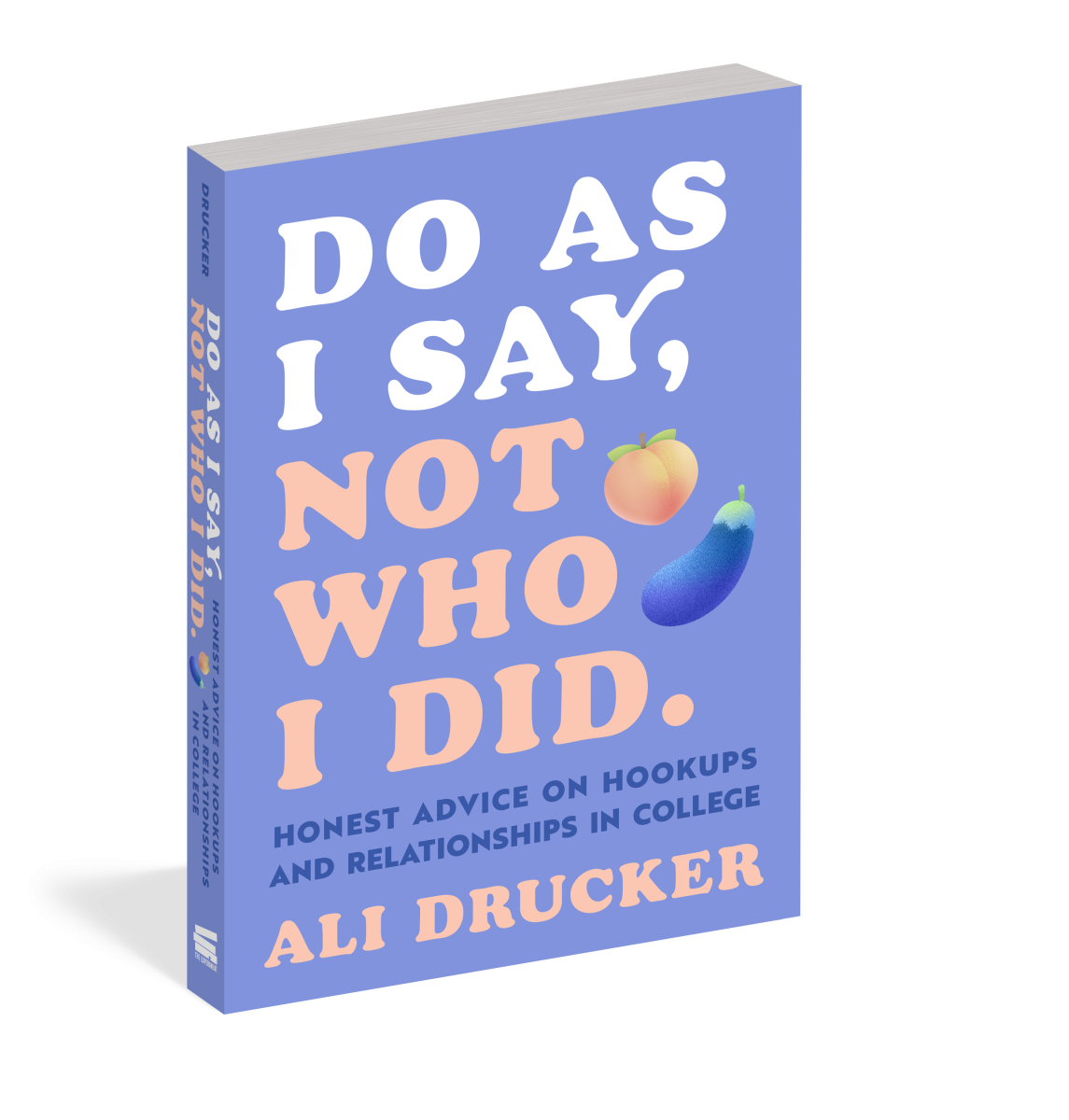Author Ali Drucker’s work focuses on educating young women on sexual health, a vitally important, yet underdiscussed topic. In her recent book, “Do as I Say, Not Who I Did: Honest Advice on Hookups and Relationships in College,” Drucker combines anecdotes with expert opinions to give readers answers to questions that often go unasked.
Growing up in suburban Massachusetts, Drucker says her sex ed experience was lacking.
“We had really great public schools in the area I was from, but even with those schools, we still had woefully underfunded sex ed,” Drucker said. “It was just subpar for what I think young adults really need. … I think my sheer lack of knowing what I was doing, every step of the way, in my intimate relationships was probably the biggest catalyst for writing the book.”
While Drucker speaks to all uninformed readers, the book has special relevance to college students. Jessica Schinsky, a third-year studying zoology, says she feels sexual health resources have low visibility on campus.
“I know that Campus Health has resources available to students,” Schinsky said. “But I don’t feel like they’re widely talked about. I feel like there’s still kind of a stigma around going to Student Health for various reasons.”
“Do As I Say, Not Who I Did” attempts to combat this stigma by being a resource for women — one that questions why women are frequently uninformed on sexual health.
“This lack of information, lack of resources, often comes back on the part of the population that’s been socialized to put other people’s needs before their own, which I think all too often is women,” Drucker said. “So the lack of info really tends to hit us hardest.”
The relevance of sex in everyone’s lives when paired with a lack of openness to conversations about sex was a driving force for Drucker.
“I think sexuality and intimacy is a universal part of the human experience,” Drucker said. “It’s [something] everybody can relate to, no matter what your desires or relationship to intimacy is.”
While working at Cosmopolitan, Drucker saw firsthand the disconnect and lack of vital information for women.
“I was up close and personal with the concerns about that readership [young women] and how underserved they are with education about their own bodies, and how unfair things still are,” Drucker said. “We’d find out that men had occasionally broken off a relationship with a woman because of her pubic hair and things like that where you’d see the double standard so clearly illuminated.”
Schinsky recognizes this double standard, saying that it remains prevalent within NC State’s hookup culture.
“I think with guys, there’s less of that stigma around hooking up,” Schinsky said. “I think that just goes back to the whole patriarchal society and the fact that guys kind of have that power.”
Drucker took it upon herself to share with women what she feels they need to hear in situations like these in order to address this double standard.
“A big catalyst [was] … to remind you that you are totally fine the way you are,” Drucker said. “You are allowed to pursue as much information about your body and make the choices that make you comfortable. You matter first in every intimate relationship.”
Drucker also acknowledges the change in times and how sexual health and safety, especially consent, are becoming more widely talked about while still not being taken seriously.
“It [consent] is a word people know now, as opposed to when I was in college,” Drucker said. “But we’re also in a place where it’s still kind of joked about. It made a book like this necessary and something that I wanted to write about to understand.”
Schinsky says she has seen the lack of seriousness around consent all too prominently on campus.
“People use the word ‘consent’ kind of freely, where it’s a serious thing,” Schinsky said. “I think most students know what it is, but I’m not sure if they actually understand how important it is.”
An overarching goal of the book is to diminish the guilt that so many women often put on themselves.
“A lot of it has to do with letting go of guilt and stress around these types of interactions,” Drucker said. “Because so often I see young women internalizing it … and have a lot of shame around it. I think we can feel free to make mistakes in our relationships and give ourselves the permission to move past them and grow from them and take information that helps us in the future, without punishing ourselves for something that might not have gone the way you wanted it to.”
The topic is equally uncomfortable as it is relevant to discuss. Even with a supportive family and an understanding from her own high school sex ed, Schinsky says she relates to the discomfort around the topic.
“It’s not a comfortable conversation,” Schinsky said. “Of course, it is important that people do feel comfortable because you’re not gonna know unless you ask questions.”
Drucker hopes that more public information and media that normalizes the topic will help to erase the stigma surrounding it for women of all ages, in all stages of life and intimacy.
“You are never past the point of learning,” Drucker said. “And you’re never past the point of accessing new information that helps you have a better, healthier sex life. We have this infinite capacity for growth and change, and learning something new is a wonderful way to empower yourself to live like you want to live.”














